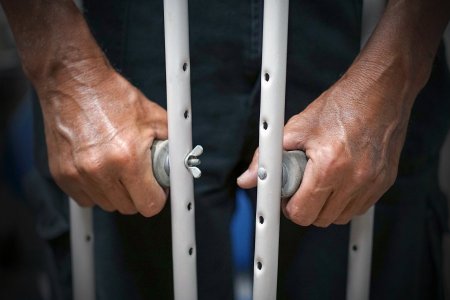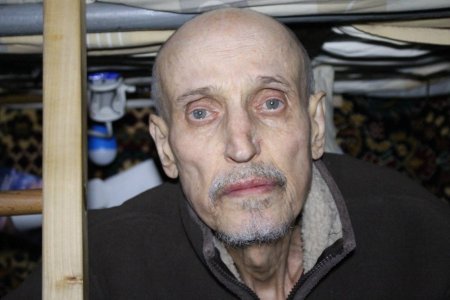
The issues of high-quality and full-fledged provision of medical services in penitentiary institutions have always been and remain relevant and a priority. On the one hand, the current legislation is well defined. However, what is written on paper is not always implemented in practice. Article 3 of the Constitution of Ukraine states: “A person, his or her life and health, honor and dignity, inviolability and security are recognized in Ukraine as the highest social value.” And Article 49 of the Constitution guarantees: “Everyone has the right to health care, medical assistance...” and “The state shall create conditions for effective and accessible medical care for all citizens. Medical care shall be provided free of charge in state and municipal health care institutions...” According to Article 7(2) of the Criminal Executive Code (CEC), “convicted persons shall enjoy all human and civil rights provided for by the Constitution of Ukraine, except for the restrictions determined by this Code, laws of Ukraine and established by a court verdict”. The first part of Article 8 of the CEC states that convicted persons have the right “to health care to the extent established by the Fundamentals of Ukrainian legislation on health care, except for restrictions provided by law.” According to the law, a person behind bars can even choose a doctor, even from a “civilian hospital” (another thing is whether the doctor will agree to visit the patient in the colony). However, the law may say nice things, but the practice of applying the law does not always correspond to the text.
Fedir Maruschenko
Fedir Marushchenko is less than 64 years old. He worked on the railroad, in 1994 he suffered a traumatic brain injury and was in a coma for six months. In 2019, he was sentenced to 8 years in prison under Article 121 of the Criminal Code of Ukraine. He served his sentence in the Dariivka Correctional Colony (No. 10) in Kherson Oblast. At the beginning of the all-out war, the institution was seized by the Russians. Fedir, along with other convicts, was taken to Russia through Crimea. On the way, the prisoners beaten and abused. They brought him to Volgograd and placed him in penal colony No. 26. He was forced to work. Then his heel hurt so badly that he could not walk on his left foot. There were no medicines, the gangrene was spreading, and the medical unit said that he was not brought here to be treated. The leg began to rot, and eventually it had to be amputated at the knee. His case file was sent to a Russian court, which released Marushchenko due to his serious illness.
Then there was the epic of his return to Ukraine. He was carried on a stretcher across the border, which they crossed on foot for almost two kilometers. And finally — his native land. But here, Fedir was again placed first in a pre-trial detention center, and then transferred to the tuberculosis hospital No. 89 (closed type) in Dnipro.
In December 2024, during a monitoring visit to the Dnipro Tuberculosis Hospital (No. 89), we met with Fedir for the second time in the intensive care unit. He has the second group of disability. He is exhausted and has lost a lot of weight. It seems that after everything he has been through, his tuberculosis is also making itself felt. Will he live to see his release in 2028? We asked Fedir if he regretted returning to Ukraine and being imprisoned, while he could have been free in Russia. Fedir said he loves Ukraine and hopes to be released.
Those who could not be saved
Volodymyr Rubchenko was suffering from a serious cancer (clinical stage 4) and died in severe pain without anesthesia, not getting a court decision on his release.
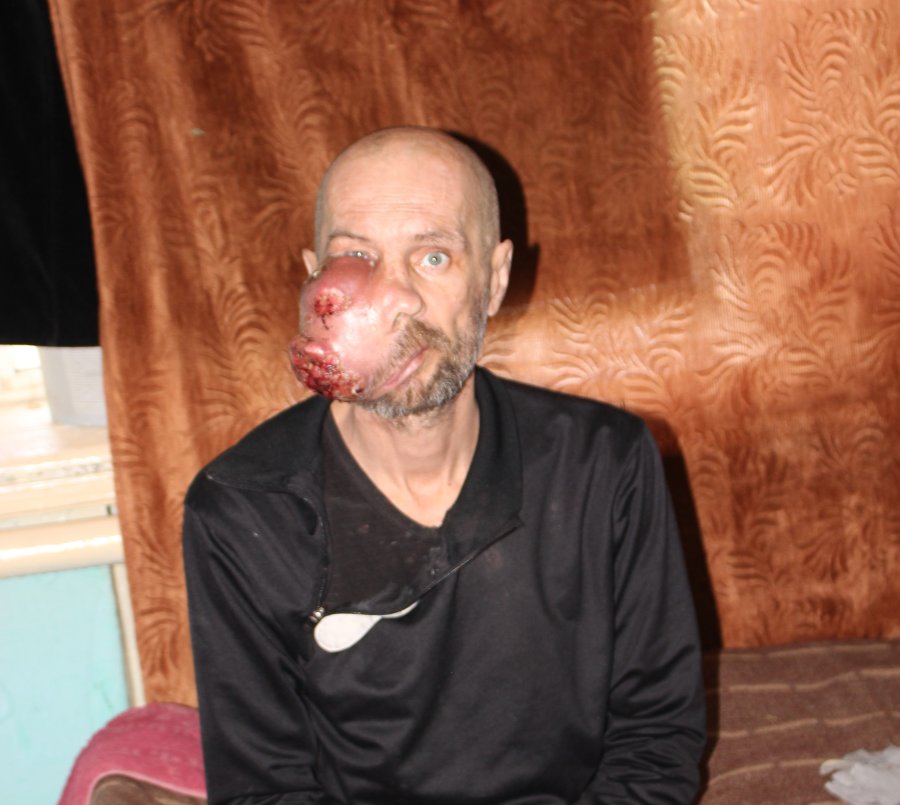
On June 22, 2022, during an unannounced monitoring visit to the medical unit of the Korosten Correctional Colony No. 71, we met Volodymyr Rubchenko. It is absolutely unclear why he was brought to this colony with oncology of the fourth clinical stage, despite the fact that there is neither a closed hospital nor an oncology department in this institution. Given the fact that Rubchenko needed palliative care, and the medical unit of PC-71 does not have a license for narcotic painkillers, Volodymyr suffered from unbearable pain all the time. After our visit, the administration of the institution submitted materials to the local court to release Rubchenko due to his serious illness. However, the court refused for formal reasons: the materials sent to the court did not contain the conclusions of the Medical Advisory Commission (MAC). Were those employees who submitted materials to the court on Rubchenko’s release aware that the court could not grant the motion without the conclusions of the Medical Commission? They probably were. Rubchenko was then transferred to the Stryzhava Multidisciplinary Hospital (No. 81), which, by the way, also does not have an oncology department, and therefore did not provide him with narcotic painkillers. The local court ruled to release him on health grounds, but Rubchenko had to spend another seven days in the institution until the appeal period expired. On the day Volodymyr was to be released, he died in severe pain. It should be reminded that Vladimir Rubchenko was sentenced to only four years of suspended imprisonment, and was commuted to a fixed-term sentence for failure to fulfill the requirements of the suspended sentence.
Tatiana Podolyako. She was sentenced to life imprisonment. She suffered from cancer of the 4th clinical stage. The local court refused to release her on medical grounds, as it decided that the gravity of the crime prevented this. Tatiana Podolyako died in custody.

Ivan Yastrebov. A life sentence, oncology stage 4, died in Lviv’s Multidisciplinary Hospital No. 19 because the court refused to release him on health grounds.

Vitaliy Matukhno. Convicted for life, clinical stage 4 throat cancer, died in Lviv Multidisciplinary Hospital No. 19 due to failure to provide medical care. The court denied his request for release on health grounds due to the gravity of his crime.
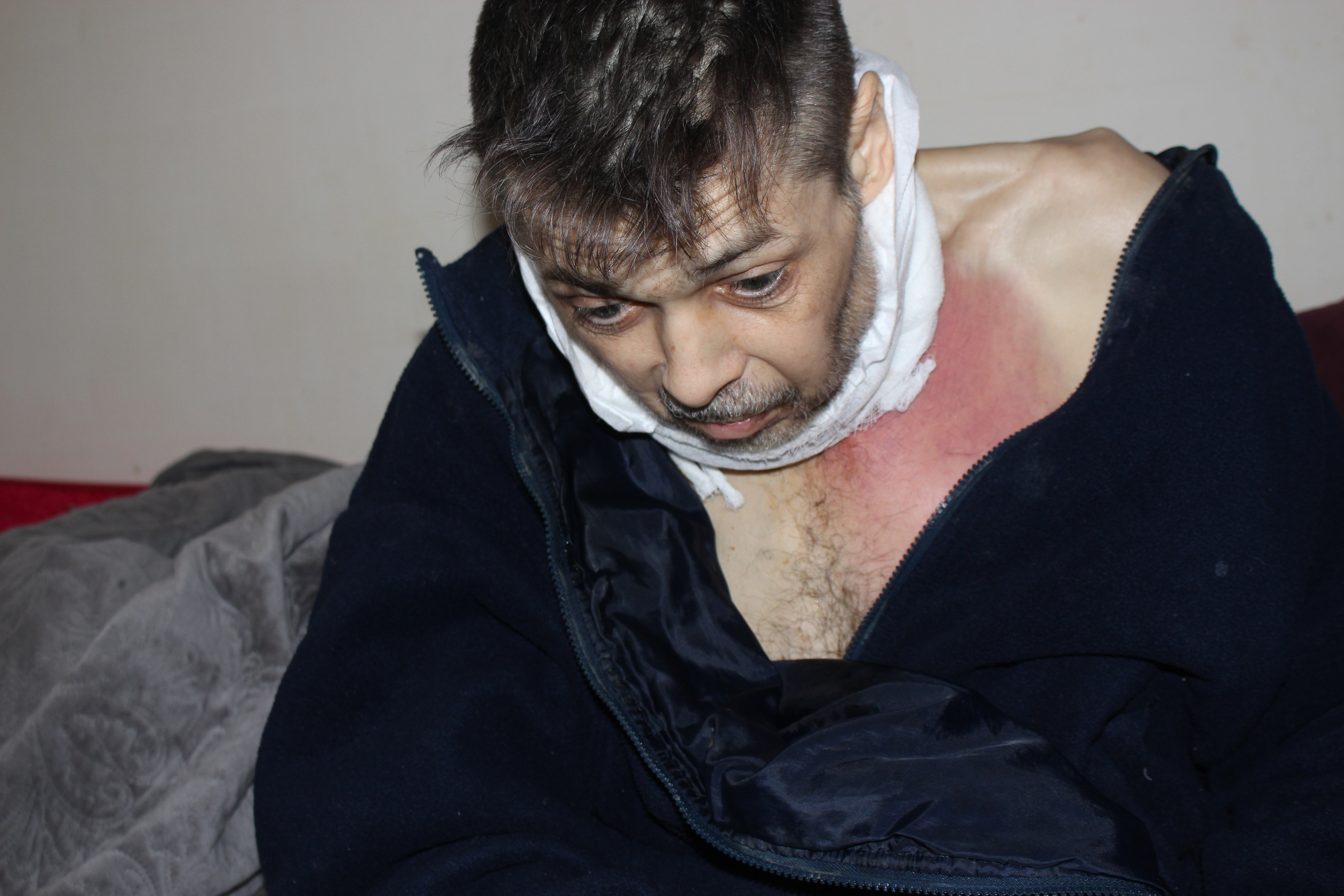
Serhiy Trotsko died in the Mechnikov Hospital in Dnipro, never having received a court decision on his release.
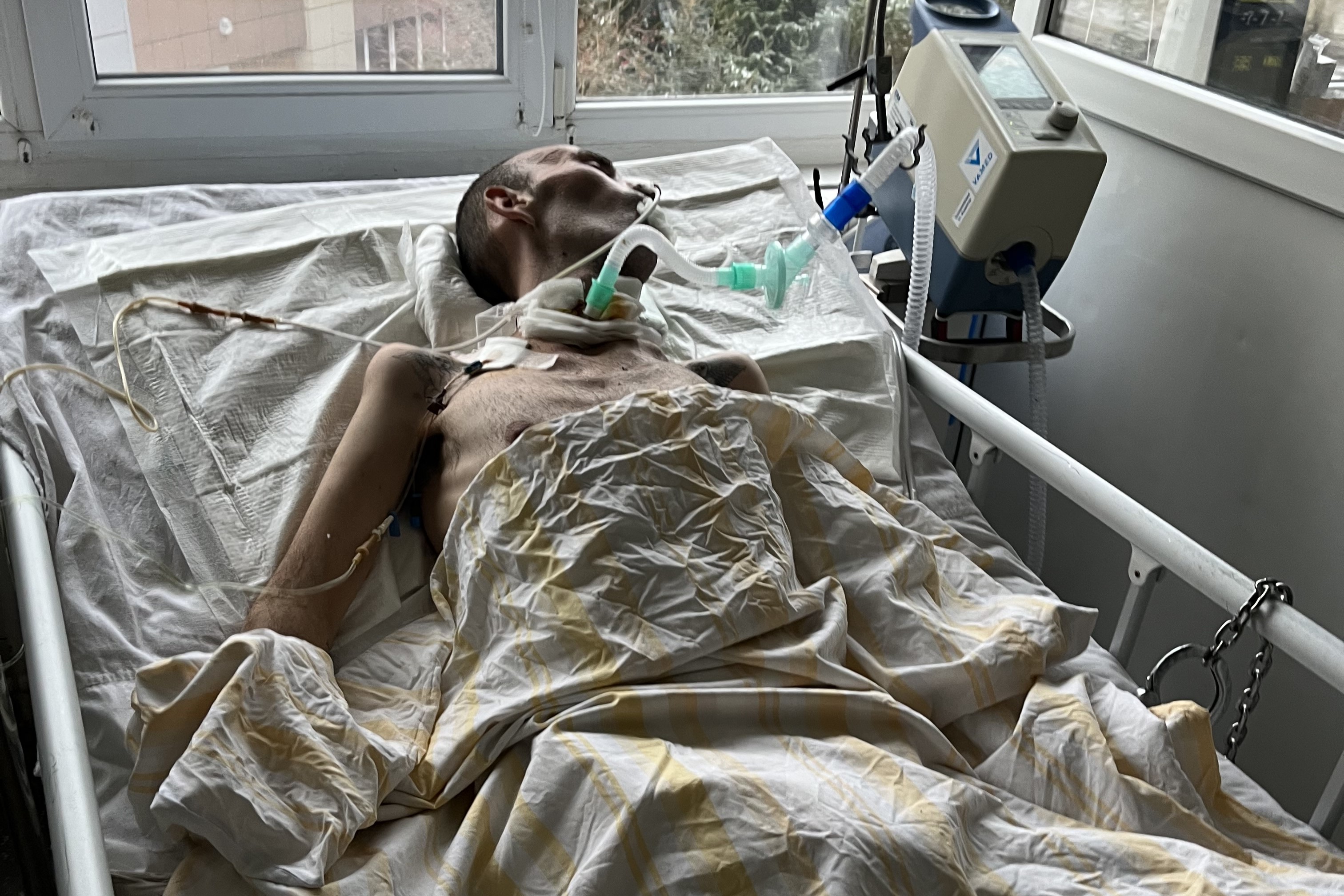
Other cases in which lives can still be saved
Convict D. suffers from clinical stage 4 HIV/AIDS and has other diseases, but this “bouquet” of diseases does not fall under the List of diseases that are the basis for submitting materials to the court to release convicts from further serving their sentences (by the number of CD-4 cells). The patient’s health condition is steadily deteriorating, but there is no prospect of her release due to her serious illness.
Mykhailo Shanta is a life-sentenced prisoner. Seven years ago, he had a heart attack, a stroke, and underwent skull trepanation. After the operation, the right side of his body was paralyzed. In fact, Shanta cannot take care of himself on his own. He cannot even go to the toilet without assistance.
Oleksandr Kushnirenko is a life-sentenced prisoner who suffered a heart attack. He is not able to take care of himself, his disease does not fall under the List.
Volodymyr Paliyenko — sentenced to life imprisonment, after a stroke, the right side of his body is paralyzed. He is unable to move independently and is bedridden.

Ihor Yukhymenko, a life-sentenced prisoner, was in a coma for two months after being beaten in Temnivska correctional colony (No. 100). After he regained consciousness, he lost the ability to speak, his ribs were broken, his knee joints were smashed, and his lower body was paralyzed. He is bedridden and cannot take care of himself.

Legislative obstacles
Under the current legislation, the court may legally refuse to release a person due to a serious illness if he or she has been convicted of a serious crime or has a penalty and no incentives, is unemployed, etc. All these nuances can be grounds for refusing to release a person. One of the main conditions for release is that the patient’s disease must fall within the List. This List was last amended in August 2014, but the diseases listed there do not actually leave a person with a chance to live. In addition, each disease is unique and purely individual. One can die from covid, sore throat or flu if one does not receive proper medical care in time. There is a certain number of convicted persons whose diseases are not included in the List and they cannot be released for health reasons, and they cannot take care of themselves — their stay in prison is a de facto violation of Article 3 of the Convention for the Protection of Human Rights and Fundamental Freedoms, which prohibits torture.
Here, for example, is a quote from the ECtHR judgment Yermolenko v. Ukraine (Application no. 49218/10, 15.11.2012): “The issue was not considered by the national courts, which, in accordance with national practice, had to base their decisions not only on medical opinions but also on other relevant circumstances. In addition, the medical commission was instructed to consider only a specific issue, namely whether the applicant’s health problems coincide with any diagnosis from the list. It was not the commission’s task to assess whether the applicant’s state of health, given his serious illnesses, was compatible with detention. In such circumstances, the Court considers that, given the absolute prohibition of torture and inhuman and degrading treatment, it is not possible to assess the compatibility of the applicant’s health condition with detention based solely on an exhaustive list of diseases, without any consideration by the national judicial authorities."
A doctor should not be part of the penitentiary system’s “regime”
Will the situation with medical care in prisons ever change? We talked about this with Yaroslav Basarab, acting director of the Centralized Health Center of the State Penitentiary Service of Ukraine. He calls all prisoners and convicted persons who are treated in the institutions of the Centralized Health Care Center of the SPS as patients and emphasizes that health care legislation establishes uniform standards and requirements for the provision of medical care — both in the so-called “civilian” and “penitentiary” medicine.

— The Cabinet of Ministers of Ukraine approved the Strategy for Reforming the Penitentiary System until 2026 by its Resolution No. 1153-r of December 16, 2022, and approved an operational plan for its implementation in 2022-2024. Within the framework of this strategy, it is currently planned to implement a pilot project, which is envisaged by the draft resolution of the Cabinet of Ministers of Ukraine “On the Implementation of a Pilot Project on the Provision of Medical Care to Convicts and Detainees held in the State Institution Bila Tserkva Correctional Colony (No. 35) in a Single Medical Space.” Therefore, it is justified to assert that in the future the current state of functioning of “penitentiary” medicine will be transitional, and the tasks of the SPS Centralized Health Center are to continue to ensure the provision of quality medical care at this transitional stage. That is why, in my opinion, it is necessary to introduce similar practices that are common in “civilian” medicine in the system of health care institutions of the SES of Ukraine. A patient in this system should have control over information about his/her health condition, he/she should be guaranteed greater protection of sensitive medical information. In addition, there should be more “interaction” between doctors and their patients in terms of keeping records and recording medical information. In other words, the patient should certify in all relevant medical documents that he or she has actually received medical care and whether or not he or she has any complaints or claims against medical professionals or the scope and quality of medical care. Also, in such documents, the medical professional must duly describe, and the patient, accordingly, must certify, the explanation of the diagnosis and treatment methods. Yes, this may lead to more “paper bureaucracy” than in civilian medicine, but it is appropriate given the number of complaints received, in particular, by the European Court of Human Rights, where it is then determined whether medical actions were actually performed or whether the medical record was not fully completed.
More attention should be paid to motivating medical professionals to make responsible decisions regarding the choice of tactics and strategies for treating patients, and to ensure that the existence of such strategies is evident in medical records.
A separate task is to teach medical workers to act not as a “regime” component of the penitentiary system, but exclusively as a medical one, which, in certain cases, should even directly protect a person from the actions of the “regime”. A big problem is to ensure fast and timely transportation of the patient, if necessary, to the relevant civilian health care facilities. Here, too, the issue is complex, due to the way the system of escorting and staging persons functions. These are the issues that are now on the surface. Others will emerge as changes are implemented, and we will also try to respond to them as quickly as possible.
An obvious problem is the issue of ensuring proper conditions in the premises where medical workers work, since currently most of these premises cause depression and depression in both patients and those who treat them. However, unfortunately, the solution to this problem is beyond the scope of the HC of SPS: all the premises where the health care facilities of the HC of SPS are located are leased and were not designed for the purposes and needs of health care facilities. In addition, there is no budgetary funding for routine repairs.
— In your opinion, is it necessary to change the list of diseases that are the basis for submitting materials to the courts to release convicts from further serving their sentences? And if so, how do you think this should be done?
— In general, release from further serving a sentence on the grounds of illness is a release for so-called “humane reasons”. That is, when it concerns diseases that pose a direct threat to life and the prognosis is unfavorable. In fact, a person is released from serving a sentence to give him or her the opportunity to leave this life not in a penitentiary institution, but, at best, somewhere at home with their family, and, in any case, as a free person. At the same time, it is assumed that a person may recover from such a disease, and therefore Article 84(4) of the CPC of Ukraine provides that such persons, in case of recovery, may be sent for further serving their sentence, if the relevant statute of limitations has not expired.
However, when deciding on the release of a person from serving a sentence due to illness, the law provides that not only the nature of the disease, but also the gravity of the criminal offense, the personality of the convicted person and other circumstances of the case are taken into account. Obviously, this significantly undermines the very idea of such release, since neither the severity of the criminal offense nor the personality of the convicted person can in any way influence or change the situation when a person is, for example, in the terminal stage of the disease, or has complete blindness, Alzheimer’s disease, hemi— or paraplegia, high amputation of upper or lower limbs, etc.
Back in 1981, the World Medical Assembly adopted the so-called “Lisbon Declaration on the Rights of Patients”, which states that “being aware of the possibility of practical, ethical and legal difficulties, a physician should always act in harmony with his conscience and always in the best interests of his patient”. At the same time, health, according to the Fundamentals of Ukrainian Healthcare Legislation, is a state of complete physical, mental and social well-being, and not only the absence of disease or disorders of structures and functions of the body.
Taking into account these highest interests of patients, the HC of the SPS of Ukraine believes that the time has come to listen to representatives of the human rights community and, together with medical experts, to discuss the need to expand the list of diseases that should give the right to release, as well as discuss other mechanisms that should practically take into account the state of health of a person and affect the issue of serving his or her sentence, so that not only the purpose of punishment mentioned in part two of Article 50 of the Criminal Code of Ukraine is achieved, but also the purpose of correcting this person, that is, his or her resocialization and rehabilitation.
We would like to see the final form of such a discussion to be an agreed position, formalized in a clear and understandable program for all parties, which could be proposed to the Ministry of Justice and practically implemented.
Efficiency of the procedure for releasing prisoners due to a serious illness: what do human rights activists suggest?
Very often, courts refuse to release a person despite the fact that he or she is in a serious condition and his or her illness is life-threatening without proper treatment. We must initiate amendments to Article 84 of the Criminal Code of Ukraine. Instead of assessing the severity of the criminal offense, the personality of the convicted person and other circumstances of the case, the court should pay attention to the degree of the disease, the danger to life during the stay in prison, and the possibility of providing adequate (full and proper) medical care.
The severity of the crime should NOT be taken into account at all, because it has ALREADY been assessed at the time of sentencing and was reflected in the sentence and the type of institution where the convicted person is held.
We also have to
- initiate changes to the List of diseases that are the basis for submitting materials to the court to release convicts from further serving their sentences in terms of humanization;
- expand the List of diseases, taking into account individual circumstances, severity of the disease, and the threat to life of further serving the sentence;
- define this List as indicative and recommendatory and should not be considered as a mandatory feature that forms the basis for making a decision on release;
- when making a decision, the court must comprehensively and reasonably consider the submission in terms of determining the expediency of keeping the convict in the penal institution, taking into account his or her health condition. The purpose of punishment and the actual public danger of the convicted person must be taken into account.

